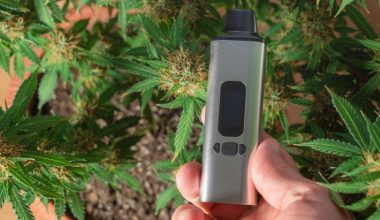The Food and Drug Administration on Thursday denied three petitions to allow the marketing of CBD products as dietary supplements and said that the agency would “work with Congress” on a regulatory pathway for the cannabinoid.
The statement was issued by Principal Deputy Commissioner Dr. Janet Woodcock.
“The use of CBD raises various safety concerns, especially with long-term use. Studies have shown the potential for harm to the liver, interactions with certain medications and possible harm to the male reproductive system. CBD exposure is also concerning when it comes to certain vulnerable populations such as children and those who are pregnant.” — Woodcock in a statement
Woodcock said the decision would allow policymakers to develop “a new regulatory pathway for CBD … that balances individuals’ desire for access to CBD products with the regulatory oversight needed to manage risks.”
Woodcock also said there are concerns about the potential risk of CBD for animals and that “people could be unknowingly exposed to CBD through meat, milk and eggs from animals fed CBD.”
“Because it is not apparent how CBD products could meet the safety standard for substances in animal food,” she writes, “we also do not intend to pursue rulemaking allowing the use of CBD in animal food.”
She added that the agency has “not found adequate evidence to determine how much CBD can be consumed, and for how long, before causing harm” and, therefore, “do not intend to pursue rulemaking allowing the use of CBD in dietary supplements or conventional foods.”
An FDA report from 2021 noted that the CBD market has grown rapidly in recent years and estimated its worth at $4.6 billion.
Get daily cannabis business news updates. Subscribe
Medical Disclaimer:
The information provided in these blog posts is intended for general informational and educational purposes only. It is not a substitute for professional medical advice, diagnosis, or treatment. Always seek the advice of your physician or other qualified healthcare provider with any questions you may have regarding a medical condition. The use of any information provided in these blog posts is solely at your own risk. The authors and the website do not recommend or endorse any specific products, treatments, or procedures mentioned. Reliance on any information in these blog posts is solely at your own discretion.






